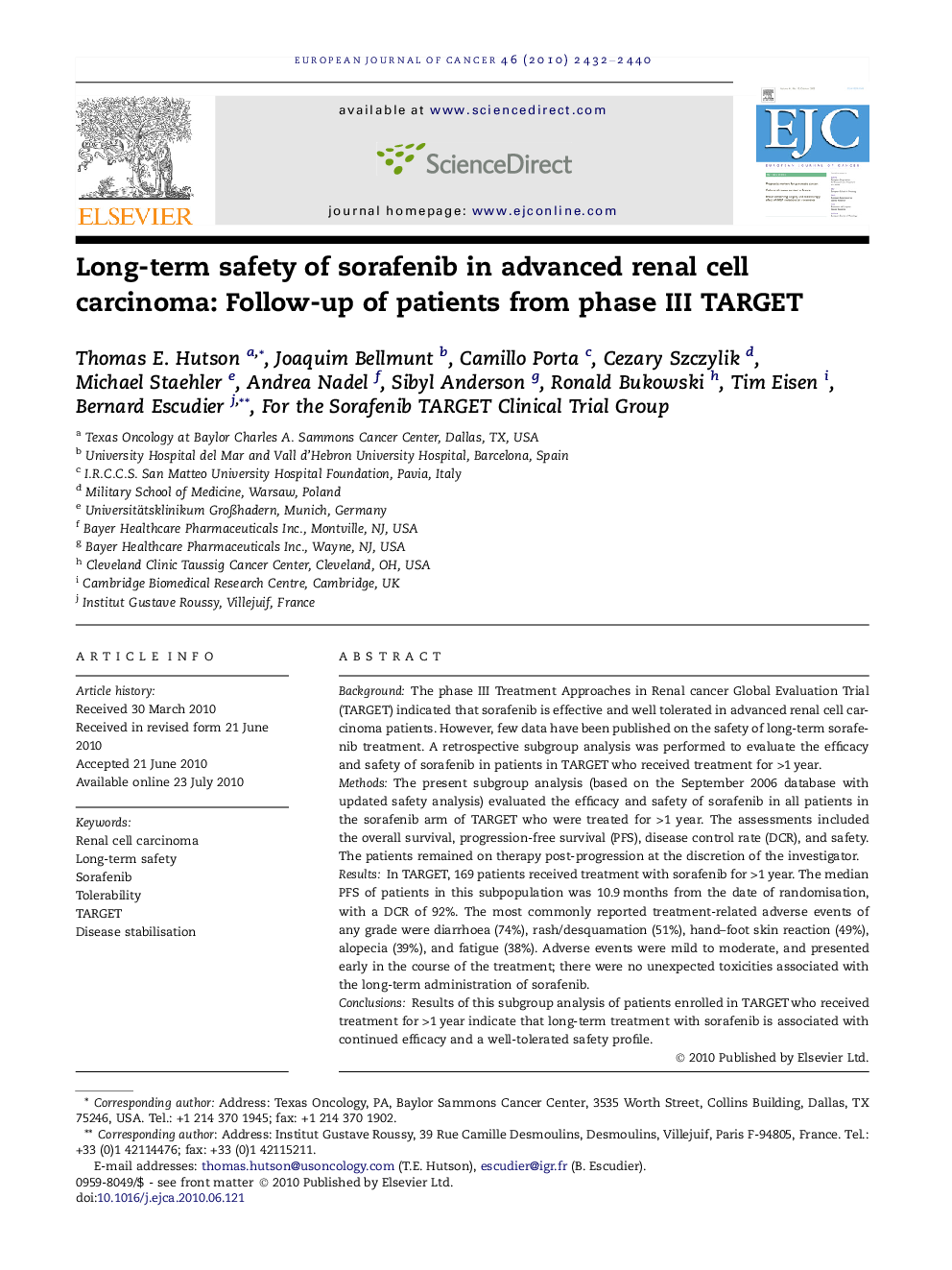| Article ID | Journal | Published Year | Pages | File Type |
|---|---|---|---|---|
| 2123979 | European Journal of Cancer | 2010 | 9 Pages |
BackgroundThe phase III Treatment Approaches in Renal cancer Global Evaluation Trial (TARGET) indicated that sorafenib is effective and well tolerated in advanced renal cell carcinoma patients. However, few data have been published on the safety of long-term sorafenib treatment. A retrospective subgroup analysis was performed to evaluate the efficacy and safety of sorafenib in patients in TARGET who received treatment for >1 year.MethodsThe present subgroup analysis (based on the September 2006 database with updated safety analysis) evaluated the efficacy and safety of sorafenib in all patients in the sorafenib arm of TARGET who were treated for >1 year. The assessments included the overall survival, progression-free survival (PFS), disease control rate (DCR), and safety. The patients remained on therapy post-progression at the discretion of the investigator.ResultsIn TARGET, 169 patients received treatment with sorafenib for >1 year. The median PFS of patients in this subpopulation was 10.9 months from the date of randomisation, with a DCR of 92%. The most commonly reported treatment-related adverse events of any grade were diarrhoea (74%), rash/desquamation (51%), hand–foot skin reaction (49%), alopecia (39%), and fatigue (38%). Adverse events were mild to moderate, and presented early in the course of the treatment; there were no unexpected toxicities associated with the long-term administration of sorafenib.ConclusionsResults of this subgroup analysis of patients enrolled in TARGET who received treatment for >1 year indicate that long-term treatment with sorafenib is associated with continued efficacy and a well-tolerated safety profile.
